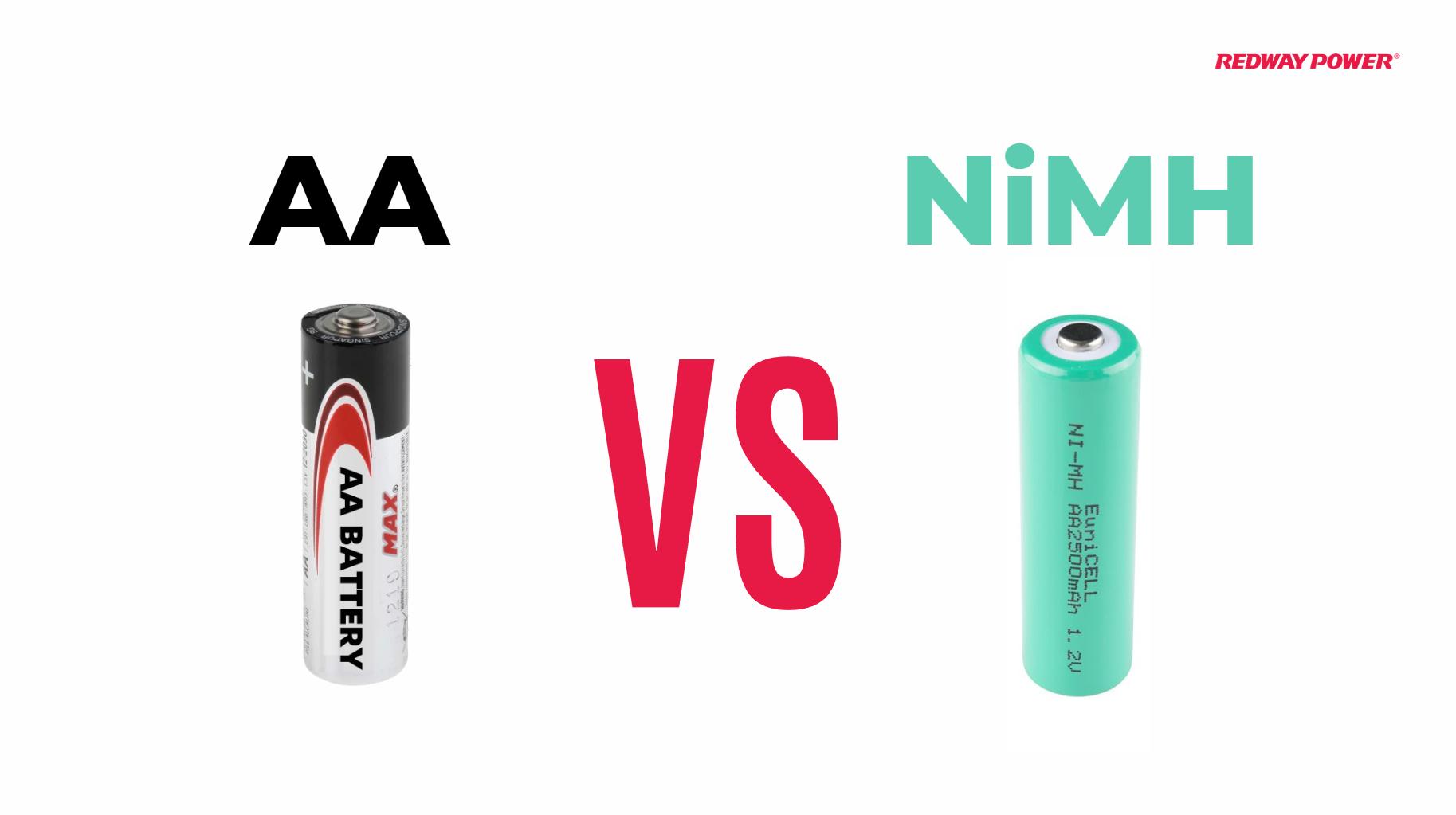When comparing lithium-ion AA batteries to nickel-metal hydride (NiMH) batteries, several factors come into play, including energy density, cycle life, self-discharge rates, charging times, temperature performance, environmental impacts, and safety features. Understanding these differences will help you choose the best battery type for your needs.
What Are the Key Differences Between Lithium-Ion AA and NiMH Batteries?
Lithium-ion AA batteries typically offer higher energy density, longer cycle life, and lower self-discharge rates compared to NiMH batteries. While lithium-ion batteries can last over 1000 charge cycles, NiMH batteries generally last between 500 to 1000 cycles depending on usage conditions.Chart Title: Key Differences Summary
| Feature | Lithium-Ion AA | NiMH |
|---|---|---|
| Energy Density | Higher | Lower |
| Cycle Life | >1000 cycles | 500 – 1000 cycles |
| Self-Discharge Rate | Lower | Higher |
| Charging Time | Faster | Slower |
How Does Energy Density Affect Performance in Lithium-Ion and NiMH Batteries?
Energy density is crucial as it determines how much energy a battery can store relative to its size and weight. Higher energy density in lithium-ion batteries means they can power devices longer without increasing size or weight, making them ideal for portable electronics.Chart Title: Energy Density Comparison
| Battery Type | Energy Density (Wh/kg) |
|---|---|
| Lithium-Ion | 150 – 250 |
| NiMH | 60 – 120 |
What Is the Cycle Life Comparison Between Lithium-Ion and NiMH Batteries?
Cycle life refers to the number of complete charge-discharge cycles a battery can undergo before its capacity significantly diminishes. Generally, lithium-ion batteries outperform NiMH batteries in this aspect due to their advanced chemistry.Chart Title: Cycle Life Overview
| Battery Type | Average Cycle Life |
|---|---|
| Lithium-Ion | >1000 cycles |
| NiMH | 500 – 1000 cycles |
How Do Self-Discharge Rates Compare for These Two Battery Types?
Self-discharge rate indicates how quickly a battery loses charge when not in use. Lithium-ion batteries have a significantly lower self-discharge rate (about 2% per month) compared to NiMH batteries (about 20% per month), making them more reliable for infrequent use.Chart Title: Self-Discharge Rates
| Battery Type | Self-Discharge Rate (%) |
|---|---|
| Lithium-Ion | ~2% per month |
| NiMH | ~20% per month |
What Are the Charging Time Differences Between Lithium-Ion and NiMH Batteries?
Lithium-ion batteries can typically be charged faster than their NiMH counterparts; they often reach full charge within one to three hours compared to the five to twelve hours required for most NiMH batteries.Chart Title: Charging Time Comparison
| Battery Type | Charging Time |
|---|---|
| Lithium-Ion | 1 – 3 hours |
| NiMH | 5 – 12 hours |
How Do Temperature Extremes Affect Performance in Both Battery Types?
Both battery types have different temperature tolerances; lithium-ion batteries generally perform better at low temperatures while being sensitive to high heat conditions that can lead to safety risks like thermal runaway. In contrast, while NiMH batteries handle high temperatures better, they may struggle in extreme cold.
What Are the Environmental Impacts of Using Lithium-Ion vs. NiMH Batteries?
The environmental impact varies; lithium-ion production involves mining for cobalt and lithium which can be damaging, while recycling processes are improving but still pose challenges for both types. However, both battery types are rechargeable, which reduces waste compared to single-use alkaline options.
How Do Safety Features Compare Between Lithium-Ion and NiMH Batteries?
Lithium-ion batteries require more stringent safety measures due to risks associated with overheating and potential fires if damaged or improperly charged. Conversely, while safer overall, NiMH batteries can still pose risks but are generally easier to handle.
Expert Views
“Choosing between lithium-ion AA and NiMH batteries depends on your specific needs,” states an industry expert. “If you require long-lasting power with minimal maintenance, lithium-ion may be preferable; however, for applications where safety is paramount or cost is a concern, high-quality NiMH options are excellent.”
Lithium VS Ni-MH AA Batteries
FAQ Section
- Which battery type lasts longer?
Lithium-ion AA batteries generally last longer than NIHM due to their higher cycle life. - Are lithium-ion AA batteries worth the higher cost?
Yes, their longer lifespan and lower self-discharge rates often make them more cost-effective over time despite higher upfront costs. - Can I use lithium-ion AA batteries in any device that takes AA?
While many devices are compatible with both types, always check manufacturer recommendations as some devices may not support lithium-ion technology effectively.




